Back

Wheel Kiwis: What makes wheelchair rugby league one of the most unique sports?
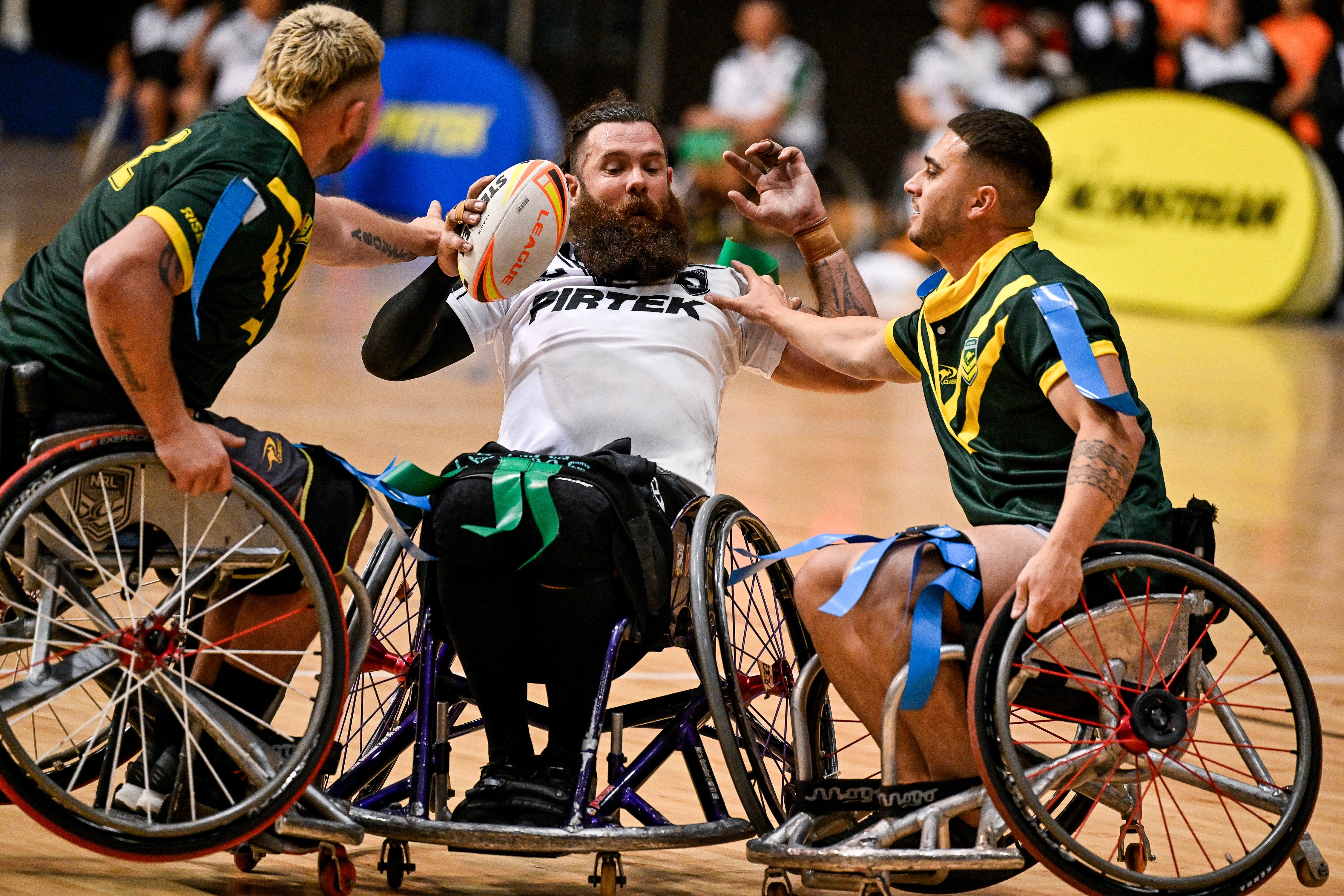
The Wheel Kiwis are hoping their inclusion at next year’s Wheelchair Rugby League World Cup will bring more eyes to one of the most inclusive and diverse sports there is.
The team are fairly new, having played their first match just 13 months ago against Australia’s Wheelaroos, but New Zealand Rugby League (NZRL) boss Greg Peters has ambitious ideas for the sport, which has surged in popularity since the last World Cup in 2022.
That was because more people were watching the sport as it ran alongside the men’s and women’s tournaments for the first time in England, forcing the International Rugby League to do the same for next year’s tournament in Australia.
But the uniqueness of the sport is also captivating. It pits disabled and non-disabled, male and female, on the same teams, while it’s an adaptation of the running game with many of the same rules, where tackles are made by removing tags from the opponents’ shoulders, and play-the-balls involve tapping it on the ground.
Each game is made up of two 40-minute halves and generally played on a 46m x 20m court, with five players on each team and tries – worth four points – are scored by grounding a smaller version of a league ball in the opponent’s goal area. There are no forward passes and plenty of hard hits at lightning speed, while kicks are performed with an AFL-style pass.
Out of the five players on the court at any given time, two can be non-disabled.
In terms of a sport, it’s relatively young, having been devised in 2000 in France, but after seeing the success of the last World Cup, Peters knew it was time New Zealand got involved.
“I think we saw how it exploded on to the scene, really, and now it’s a full-blown World Cup alongside men’s and women’s,” Peters told the Herald.
“We knew we needed to be part of that because, as a high-capability rugby league nation, we should be fielding a team in all World Cups that are available for us to do so.
“The game is unique in that you can have able-bodied people playing with disabled people on the same court, which makes it fully inclusive, plus the physicality and the nature of it ... [makes it] a great entertainment spectacle too.”
New Zealand’s participation in the wheelchair sport was 16 years in the making, after plans for them to participate in the inaugural 2008 tournament fell through.
But after seeing the World Cup, the Warriors Community Foundation joined forces with the NZRL, Auckland Rugby League, Counties Manukau Rugby League and Disability Sport Auckland for a have-a-go day, and the wheels in motion have been in place since.
That led to the creation of the Wheel Kiwis, and Edie George was tasked with coaching the squad, after initially just reaching out to offer a helping hand.
Want to get involved in wheelchair rugby league?
Let us know you're interested here:
Register your interest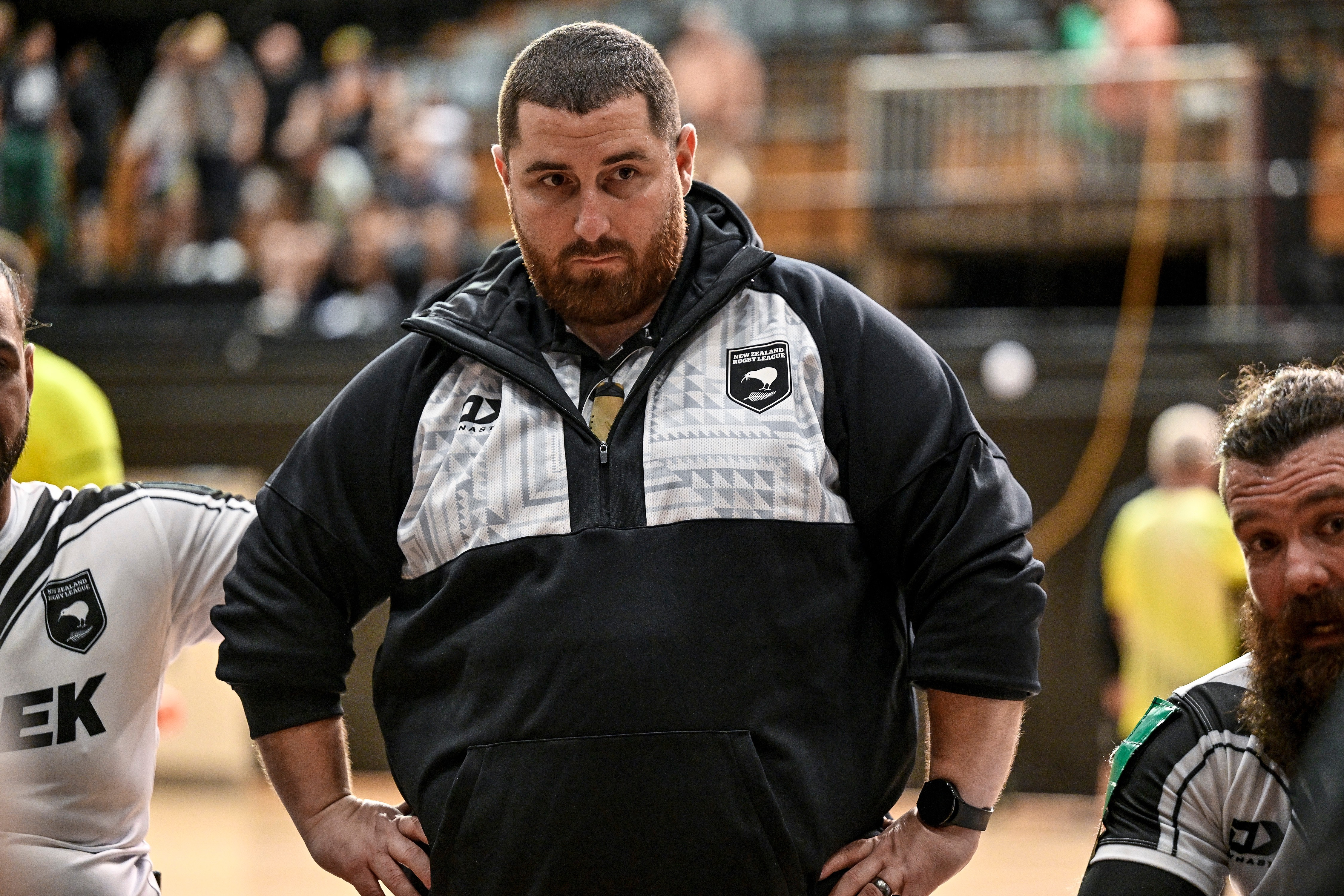
George has been involved in the sport since 2013, which began while working at a rehab centre in Sydney. He began playing before moving up the ranks, eventually, serving as an assistant for Australia at the last World Cup.
It was a tough start at the beginning, with George having to teach the basics to all the players, because most of the squad had never played the sport before.
They took to the court for the first time on November 1, 2024, on Auckland’s North Shore, going down 98-4 to the Wheelaroos and again 110-8 days later.
But 12 months later, they’ve progressed in leaps and bounds – the team won three of their six matches at the NRL’s Wheelchair championship against Australian states.
George said he’s grateful for the opportunities the sport has given him.
“I never thought I’d be in this position, ever,” George said. “Once I started coaching, I fell in love, and it’s a huge honour to be able to coach a team into the World Cup.
“I’ll be proud of it for the rest of my life, and [it’s] something that I’ll always cherish and appreciate.

“We want to grow the participation at grassroots level in New Zealand, and to be competitive as we can in the World Cup.”
George said he’s always blown away by the skills of the players involved.
“In rugby league, when you take a hit-up, you’re running, focusing on catching the ball and hitting the gap,” George said. “In wheelchair rugby league, it’s completely different.
“You’re pushing with your arms, the ball’s coming toward you, and you have to let go of the chair, manoeuvre it as you catch the ball, then secure it in your lap and keep pushing all while avoiding contact.
“We’re starting to showcase that despite the sport being played in a wheelchair, you can still showcase talents of rugby league skills.
“These are athletes, and they should be treated as athletes as well. So, by having men’s, women’s, wheelchair all together, that’s, you know, will be a huge boost for the game.”
Plans are in place to stage an open tournament in New Zealand next year for anybody who wants to try the sport, and possibly put their hand up for future representation of the Wheel Kiwis.
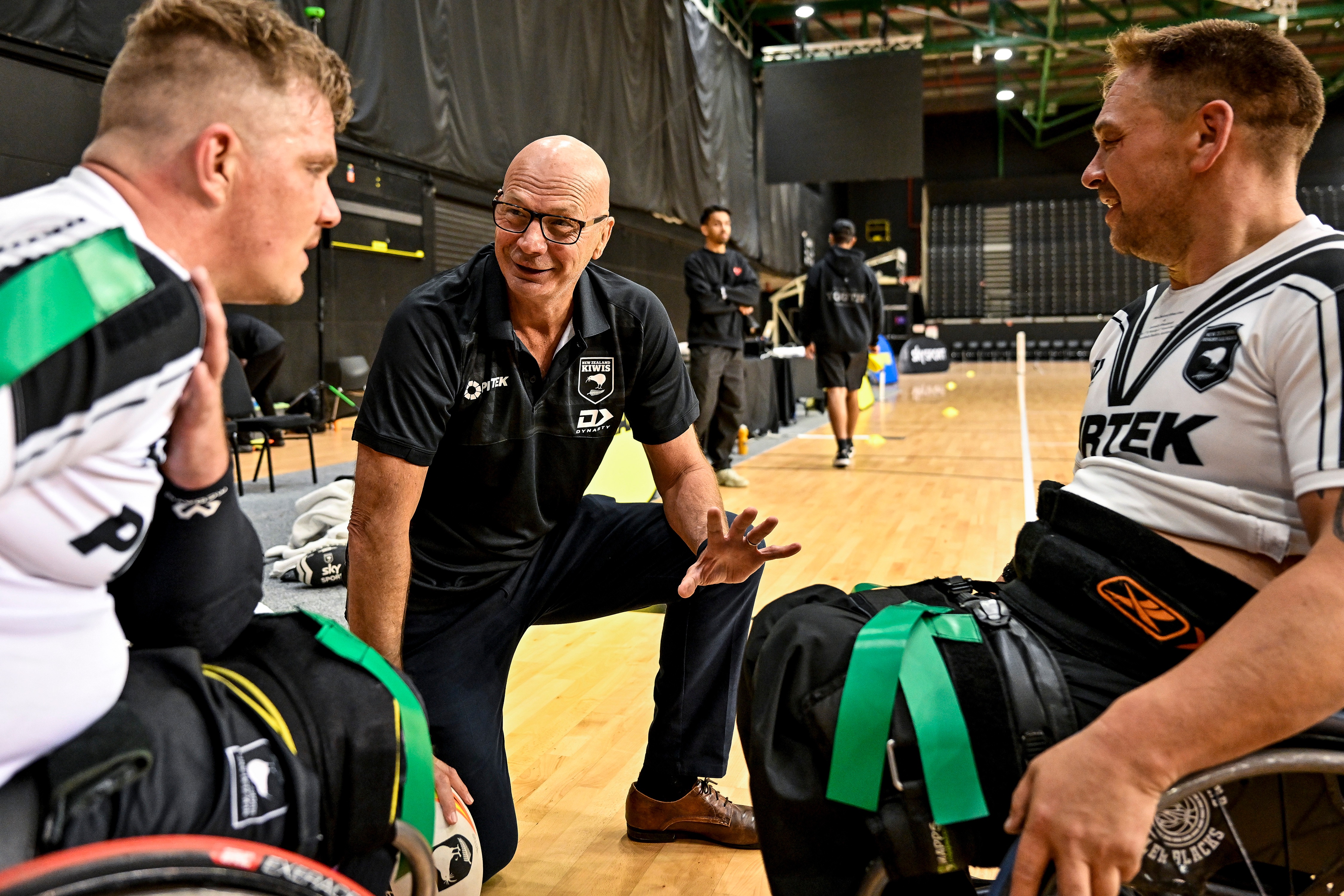
Peters admits they are in the early stages of developing the sport in New Zealand, but says they are on the right track for future success.
He’s ambitious about where he would love to see the sport in five years with the hope of having a domestic league across New Zealand, aligned with local clubs.
Countries like England and France have already established domestic competitions, with some Super League clubs entering their own sides, players earning MBEs for their services to the sport, and thousands of fans turning out to watch.
But there is one goal Peters would love to tick off.
“I’d love to sell out Spark Arena for a wheelchair rugby league spectacle,” Peters said.
“I think it’s just an amazing entertainment sport, and it has the ability to wrap other things around it, like music, and make it a real entertainment spectacle.
“I’d encourage anyone that hasn’t seen it, have a look on YouTube and see what it’s like, because it’s an amazing sport.
“We want the sport to be as accessible to as many people as possible, and adding the Wheel Kiwis to the teams that represent New Zealand overseas and at World Cups and internationally is a really important part of that.”
New Zealand have been drawn in Pool B, alongside Australia, France and Scotland for the World Cup, with all matches taking place in Wollongong.
As seen on nzherald.co.nz
Want to get involved in wheelchair rugby league?
Let us know you're interested here:
Register your interestAll the NEWS. All the VIEWS.
All the ACTION!

State of Origin international eligibility rules modernised
The Australian Rugby League Commission (ARLC) today announced the modernisation of State of Origin international eligibility rules to reflect the continued growth and global strength of Rugby League.
Under the updated rules, any player who meets the existing State of Origin eligibility criteria will be able to play State of Origin, regardless of the nation they represent in international fixtures.
Previously, players were required to be eligible to represent Australia or a Tier Two nation as defined by International Rugby League (IRL). The updated rules remove this restriction, allowing players who represent Tier One nations — and who meet the traditional State of Origin criteria — to now be eligible.
The change reflects the strength of the international game and the significant growth of Rugby League, particularly across the Pacific.
Core State of Origin eligibility criteria remain unchanged:
- The player was born in New South Wales or Queensland; or
- The player resided in New South Wales or Queensland prior to their 13th birthday; or
- The player’s father played State of Origin.
ARLC Chairman Peter V’landys AM said the changes were a necessary and logical evolution for the game in 2026.
“Rugby League has changed, the international game has grown, and our rules need to reflect that,” Mr V’landys said.
“If a player is eligible to play State of Origin, it makes no sense to exclude them simply because they’ve represented New Zealand or England at Test level.
“State of Origin is about where you’re from and what State you’re eligible for — not which country you represent internationally. If you’re eligible, you should be able to play for your State.
“Over 45 years, State of Origin has developed into something special, and we want the best players playing if they’re eligible.
“The Commission has a responsibility to grow both the international game and State of Origin, and this change strengthens both.”
New Zealand will host its first-ever State of Origin match next year at Eden Park, Auckland.
As seen on nrl.com
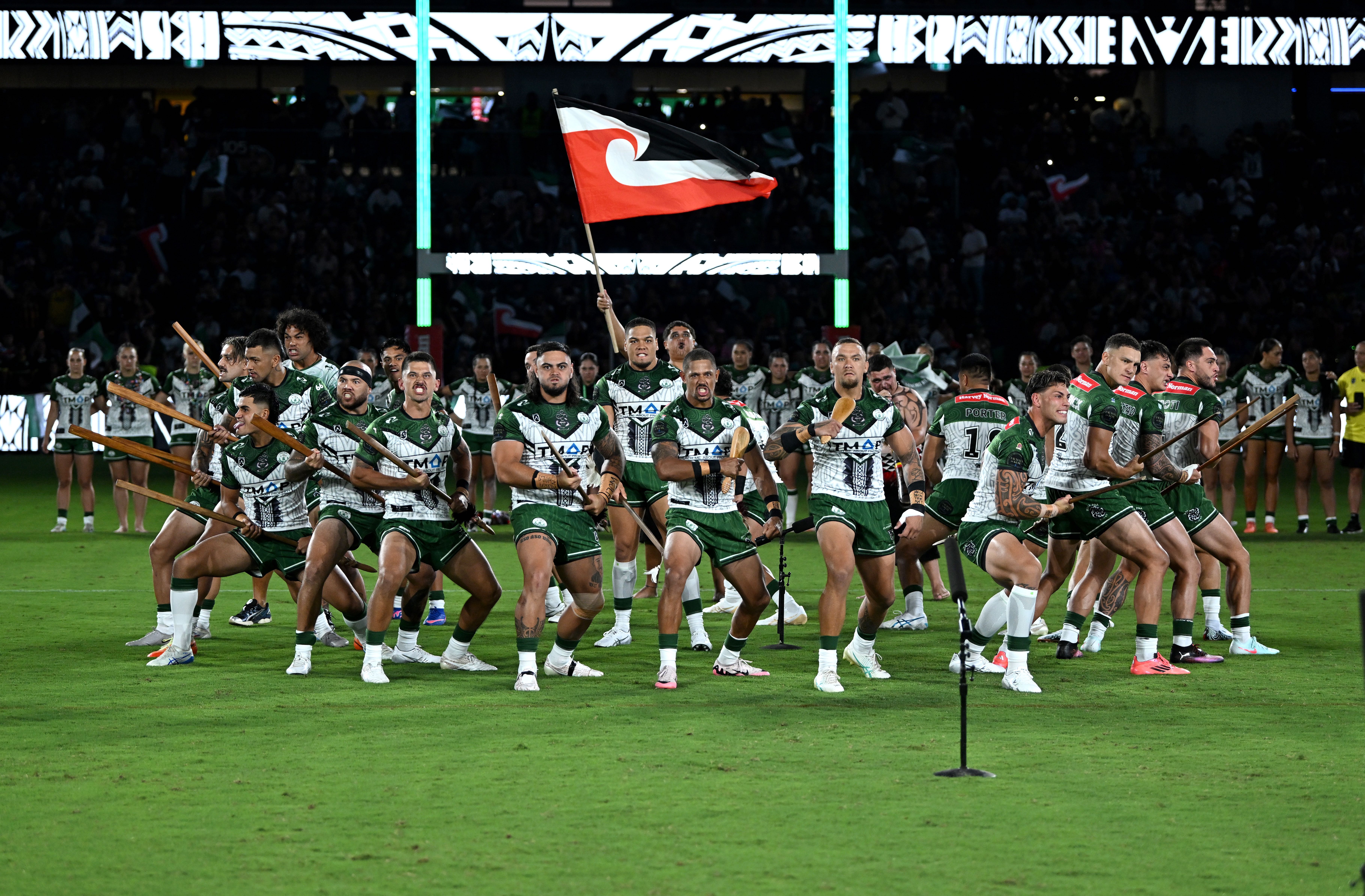
2026 Harvey Norman All Stars squads announced, Kiwis & Kiwi Ferns named in Māori All Stars
Harvey Norman All Stars returns to Aotearoa New Zealand for the 15th edition of the game’s annual cultural showpiece to kick off the 2026 Rugby League calendar.
The Harvey Norman All Stars Men’s and Women’s fixtures will be played at FMG Stadium Waikato on Sunday 15 February, featuring Indigenous All Stars legends Josh Addo-Carr, Nicho Hynes and Jack Wighton taking on the might of Warriors captain James Fisher-Harris, star back Charnze Nicoll-Klokstad and exciting Panthers centre Casey McLean in the Men’s Māori side.
The Indigenous Women’s All Stars will feature Titans superstar Jaime Chapman and Dragons playmaker Taliah Fuimaono against a Māori Women’s outfit boasting Warriors recruit Gayle Broughton and Eels powerhouse Kennedy Cherrington.
The event will also include a clash between the Indigenous and Māori Touch Football teams.
Indigenous All Stars (Men)
Josh Addo-Carr, Jayden Campbell, Tallis Duncan, Jamal Fogarty, Trai Fuller, Nicholas Hynes, Alofiana Khan-Pereira, Josh Kerr, Kaiden Lahrs, Shaquai Mitchell, Oliver Pascoe, Joshua Patston, Hohepa Puru, Jesse Ramien, Ethan Roberts, Blake Steep, Braydon Trindall, Connor Watson, Jack Wighton, Brent Woolf.
Coach: Ronald Griffiths
Māori All Stars (Men)
Jesse Arthars, Joe Chan, Zach Dockar-Clay, JoJo Fifita, James Fisher-Harris, Mawene Hiroti, Royce Hunt, Keano Kini, Jacob Laban, Casey McLean, Te Maire Martin, Trey Mooney, Charnze Nicoll-Klokstad, Briton Nikora, Adam Pompey, Leo Thompson, Trent Toelau, Manaia Waitere, Dallin Watene-Zelezniak.
Coach: Adam Blair
Indigenous All Stars (Women)
Essay Banu, Shaylee Bent, Krystal Blackwell, Rhiannon Byers, Jaime Chapman, Bree Chester, Kirra Dibb, Quincy Dodd, Taliah Fuimaono, Tallisha Harden, Caitlan Johnston-Green, Keilee Joseph, Grace Kemp, Ella Koster, Lailani Montgomery, Mahalia Murphy, Jasmine Peters, Phoenix-Raine Hippi, Jada Taylor, Caitlin Turnbull.
Coach: Jess Skinner
Māori All Stars (Women)
Shakira Baker, Corban Baxter, Gayle Broughton, Harata Butler, Rima Butler, Kennedy Cherrington, Rueben Cherrington, Laikha Clarke, Zali Fay, Fane Finau, Matekino Gray, Mya Hill-Moana, Raecene McGregor, Shanice Parker, Ashleigh Quinlan, Jasmin Strange, Payton Takimoana, Chante Temara, Zahara Temara, Tenika Willison.
Coach: John Strange
Tickets for Harvey Norman All Stars 2026 are available from nrl.com/tickets, starting at $19 for adults and $59 for families (two adults and two children).
The All Stars matches will be broadcast live on the Nine Network, Fox League, SKY New Zealand and on Watch NRL.
The Harvey Norman All Stars is proudly supported by New Zealand Government through the Major Event Fund and Hamilton City Council.
As seen on nrl.com
Kiwis in the 2026 Aotearoa New Zealand Māori Tane All Stars:
Briton Nikora #818
Casey McLean #841
Charnze Nicoll-Klokstad #820
Dallin Watene-Zelezniak #794
James Fisher-Harris #801
Keano Kini #836
Leo Thompson #833
Te Maire Martin #802
Kiwi Ferns in the 2026 Aotearoa New Zealand Māori Wahine Toa All Stars:
Ashleigh Quinlan #171
Gayle Broughton #181
Harata Butler #154
Mya Hill-Moana #155
Raecene McGregor #140
Shakira Baker #187
Shanice Parker #163
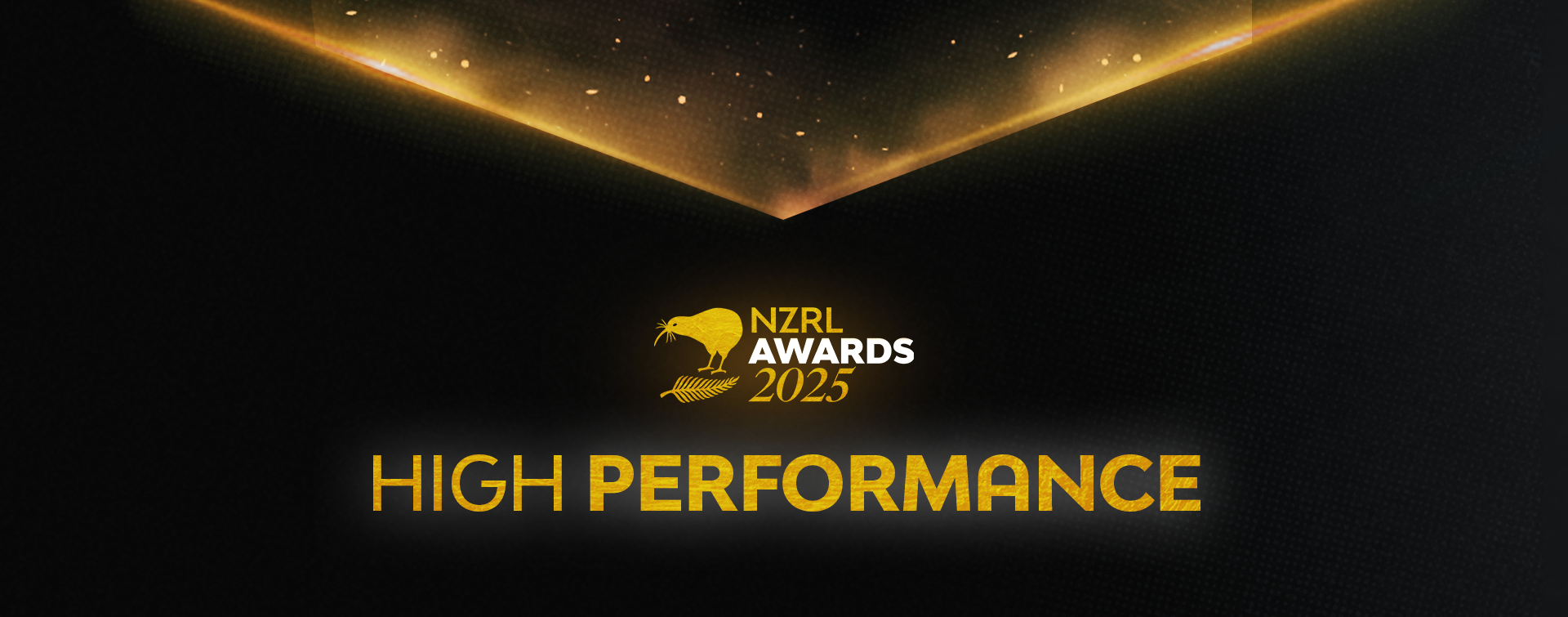
Joseph Tapine and Mele Hufanga claim NZRL Player of the Year honours for 2025
Joseph Tapine (Kiwi #800) and Mele Hufanga (Kiwi Fern #166) have been named the 2025 NZRL Players of the Year for the Kiwis and Kiwi Ferns. Ryan Charles (Wheel Kiwi #1) received the Wheel Kiwis Player of the Year award, while rising star Casey McLean (Kiwi #841) and debutant Ivana Lauitiiti (Kiwi Fern #188) were recognised as Rookies of the Year.
Joseph Tapine is awarded the Steve Watene Memorial Medal after a stellar season as a key member of the leadership team that guided the Kiwis to their 2025 Pacific Cup title, while also captaining the Canberra Raiders. Mele Hufanga played a vital role in the Broncos’ Premiership-winning season and the Kiwi Ferns’ Pacific Championships campaign, earning her the Player of the Year honour.
New Zealand Kiwis Player of the Year: Joseph Tapine (Canberra Raiders)
It was a standout season for Tapine in the NRL. Taking over as Captain at Canberra, he led the team to its first Minor Premiership since 1990. He played 23 of 27 games and claimed a fourth straight Meninga Medal as Raiders’ Player of the Year, making club history. Tapine was also voted into the Rugby League Players' Association (RLPA) Players' Dream Team by his peers. On the international stage, he impressed across all three Championship matches, averaging 140 running metres per game. He made 34 tackles against Toa Samoa, 23 against Tonga, and ran for 174 metres in the final, earning an International Rugby League Golden Boot nomination.
New Zealand Kiwi Ferns Player of the Year: Mele Hufanga (Brisbane Broncos)
Hufanga was once again a cornerstone for the Broncos in 2025, scoring eight tries, producing three try assists, and registering 15 line breaks across the season. Her campaign was highlighted by a stunning game-winning try in the Grand Final against the Roosters. Returning for her fourth international season with the Kiwi Ferns, she maintained her try-scoring form with another game-winner against Fetu Samoa off the back of a 90-metre line break. Across the final two Tests against the Jillaroos, Hufanga ran for 217 metres and added two tackle breaks, one line break, and one line break assist, reinforcing her reputation as a consistent game-breaker.
New Zealand Kiwis Rookie of the Year: Casey McLean (Penrith Panthers)
The 19-year-old Casey McLean played one game for the Kiwis in the 2024 Pacific Championships, a memorable debut where he scored four tries against Papua New Guinea, in what would be the first glimpse of his talents on the international stage. He enjoyed a breakout 2025 season with Penrith playing 23 matches, finishing with 16 tries and 11 try assists. McLean was a standout in his second campaign for the Kiwis, scoring twice and making three line breaks in Round 1 against Toa Samoa, adding a try and three line breaks against Tonga, and crossing again in the Grand Final against Toa Samoa. The Rookie of the Year has now scored in every Test he has played in, totalling eight tries from four appearances, marking him as an exciting long-term prospect for both the Panthers and the Kiwis.
New Zealand Kiwi Ferns Rookie of the Year: Ivana Lauitiiti (New Zealand Warriors)
One of Aotearoa’s most promising young prospects in recent years, Ivana Lauitiiti enjoyed an unforgettable 2025 rookie season, making both her NRLW and international debuts. Her strong performances earned her a regular bench role for the Warriors, finishing with six appearances, two tries, 36 tackle breaks, 105 average running metres, and 71 tackles. A bone-rattling hit in Round 11 earned her the NRLW Dally M Tackle of the Year, and she was named Warriors Rookie of the Year. Her stellar club form secured selection in the Kiwi Ferns squad, appearing in all three Tests as an interchange prop. She made her international debut in the Round 1 comeback win over Fetu Samoa. Across her maiden campaign as the youngest in the squad, Ivana ran for 131 metres, making 32 tackles, and delivering six offloads, a solid start to the Rookie of the Year’s international career.
New Zealand Wheel Kiwis Player of the Year: Ryan Charles
Ryan Charles was named Wheel Kiwis Player of the Year after exemplifying excellence both on and off the court. A respected leader for the Wheel Kiwis, he guided his teammates with professionalism, humility, and a strong sense of whanaungatanga. At the inaugural NRL Wheelchair National Championships, he was a standout performer, converting almost every kick and adding several tries. His performances combined accurate kicking, creative playmaking, and strong game awareness. Off the court, Ryan serves as a mentor and role model, promoting wellbeing, hauora, and positive team culture through his holistic approach to leadership. His commitment, leadership, and passion for wheelchair rugby league make him a truly deserving recipient of this award.
Shortlist: Jayson Hooker, Mitch Stone.
2025 New Zealand Rugby League high performance award winners
New Zealand Kiwis Player of the Year: Joseph Tapine (Canberra Raiders)
New Zealand Kiwi Ferns Player of the Year: Mele Hufanga (Brisbane Broncos)
New Zealand Wheel Kiwis Player of the Year: Ryan Charles
New Zealand Kiwis Rookie of the Year: Casey McLean (Penrith Panthers)
New Zealand Kiwi Ferns Rookie of the Year: Ivana Lauitiiti (New Zealand Warriors)
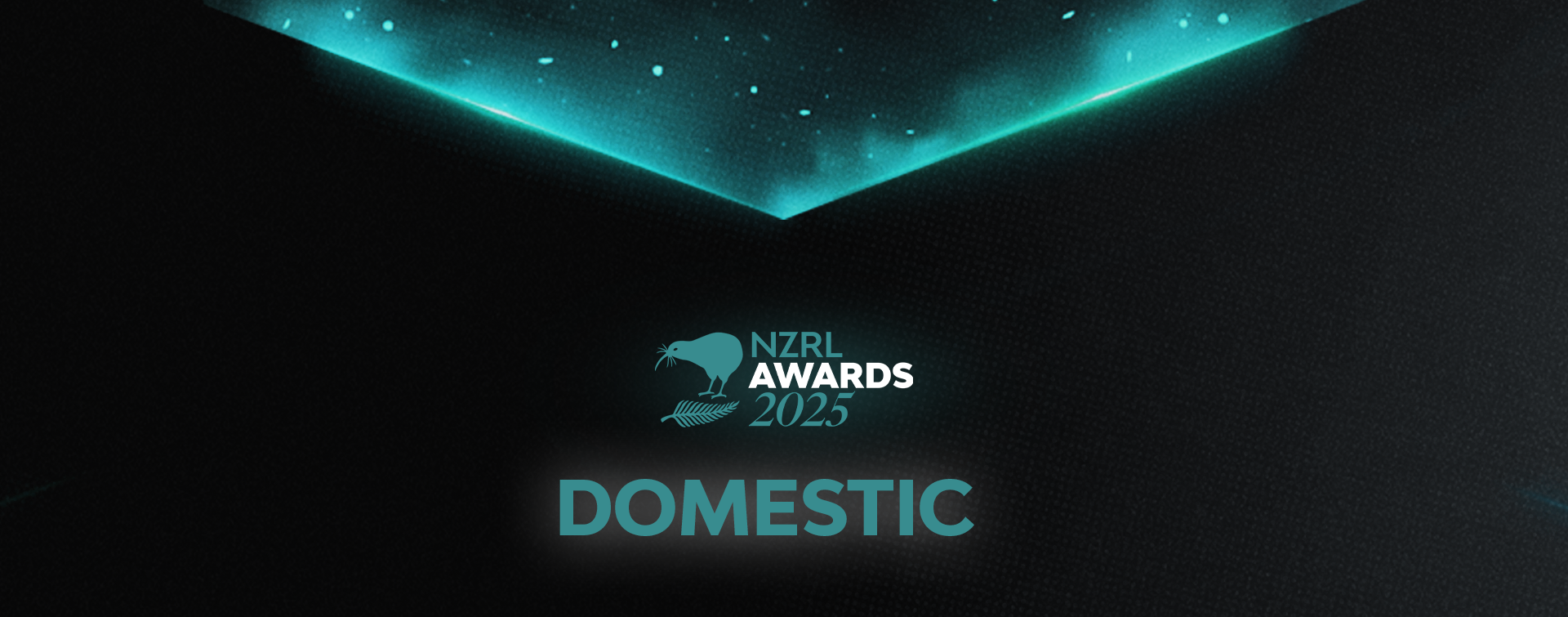
NZRL’s 2025 domestic rugby league award winners
2025 marked another outstanding year for domestic rugby league in Aotearoa as participation continued to grow, alongside increased support from volunteers, coaches, and our wider rugby league community. The talent, commitment, and effort shown across the game made selecting the 2025 NZRL award winners challenging. We congratulate the award winners as well as the shortlisted nominees.
NZRL CEO Greg Peters shares, “As we reflect on the outstanding achievements and contributions across rugby league in 2025, highlighted by our award recipients, we also acknowledge and thank everyone who plays a part in strengthening our game.
"The dedication shown at every level continues to drive rugby league forward in a positive and inspiring way, it is a proud time for our game.”
Grassroots Club of the Year: Rātana Pā Sports Club (Manawatu)
Rātana Pā Sports Club has shown continued dedication to growing rugby league in its small community, located between Palmerston North and Whanganui. Historically been a rugby union dominant community, in 2024 the sports club established the area’s first men’s and women’s teams in the Manawatū Rugby League senior competition. Building on this momentum, in 2025 the club established a junior programme, entering six teams into the Manawatū junior competitions, with 100 tamariki, teina, and rangatahi getting involved. Now, juniors and seniors from the Pā have been provided the opportunity to play rugby league, and the Manawatū District competitions have grown through the addition of the Sports Club’s teams.
Shortlist: Greymouth Greyhounds, West Coast; Maraenui Rugby League Club, Hawke’s Bay; Mt. Albert Lions, Auckland; Ōtāhuhu Leopards, Counties Manukau; Papamoa Bulldogs, Coastline; Randwick Kingfishers, Wellington; Riccarton Knights, Canterbury; Tautoro Titans, Te Tai Tokerau Rugby League; Whangamatā Whai, Hauraki.
Female Domestic Player of the Year: Onjeurlina Hunt (Ōtāhuhu Leopards | Counties Manukau Stingrays)
Returning to rugby league in 2025 after having her first child, Onjeurlina Hunt (née Leiataua) was back to her renowned form as she captained the Ōtāhuhu Leopards Women, and the Counties Manukau Women in the Sky Sport National Women's Premiership. She led Ōtāhuhu to the Steele-Shanks Premiership semi-finals, before guiding the Counties women through an undefeated campaign to claim the National title. Leading from the middle of the field, nearly every run produced tackle breaks and a line break, often producing a try of her own or putting her team on the front foot. Her leadership was also evident as she drew on her years of experience to encourage and help younger and less experienced teammates. Onjeurlina’s 2025 season was a standout comeback marked by strong leadership and second to none performance.
Shortlist: Elizabeth Shelford Edwards, Moerewa Tigers and Northland; Malena Lavea, Richmond Rovers and Akarana; Mele Wihongi-Hemaloto, Richmond Rovers, Northland and Akarana; Te Raukura Leafe, Randwick Kingfishers and Wellington; Terongomaianiwaniwa Williams, Eastern Eagles and Canterbury.
Male Domestic Player of the Year: Jamel Hunt (Ōtāhuhu Leopards | Counties Manukau Stingrays)
Jamel Hunt enjoyed an outstanding 2025 season, captaining both the Ōtāhuhu Leopards Premier Men and Counties Manukau Men to championship titles. He was instrumental in the Leopards collecting all major ARL trophies including the prestigious Fox Memorial Shield, the Roope Rooster, Kiwi Shield, and the Rukutai Shield. He carried this success into the Counties side, leading the team in their unbeaten season, which saw them take out the National Premiership. A powerful and skilful enforcer in the middle, Jamel’s leadership was equally influential as he consistently led by example on and off the field. Working closely with team staff at both Ōtāhuhu and Counties, he helped foster a positive, high-performance team culture, playing a key role in his teams’ title-winning success. Jamel’s consistent excellence, leadership, and championship success at both club and representative level rightfully earned him the Player of the Year award.
Shortlist: Dylan Tavita, Ōtāhuhu Leopards and Counties Manukau; Poutawera Ratana, West Coast Raiders and Te Tai Tokerau; Sebastine Ikahihifo, Ōtāhuhu Leopards and Counties Manukau.
Domestic Coach of the Year: Tusa Lafaele (Ōtāhuhu Leopards | Counties Manukau Stingrays)
At the helm of the successful Ōtāhuhu Leopards Premier Men and the Counties Manukau Men was Tusa Lafaele, whose 2025 coaching season was nothing short of remarkable. Under his leadership, Ōtāhuhu dominated the Auckland Rugby League Fox Memorial Premiership, winning all 17 matches to secure the prestigious Fox Memorial Shield, along with the Roope Rooster, Kiwi Shield, and Rukutai Shield. Building on this success, Tusa applied his proven coaching approach to the Counties Men’s team in the National Premiership. In similar fashion, Counties clean-swept the Premiership to win all matches and secure the National title for the first time in 10 years, cementing Tusa as the 2025 Domestic Coach of the Year.
Shortlist: Andrew Auimatagi, Linwood Keas and Canterbury; Bryce Wilson, Northland; Charlie Tikotikoca, Marlborough and Te Tauihu; Jaedyn Eagle, Tamatea Arikinui and Hawke’s Bay; Krystal Rota, Papakura Sea Eagles and Counties Manukau; Pila Hingano, Pakuranga Jaguars and Counties Manukau; Sese Henry, Ōtāhuhu Leopards and Counties Manukau.
Female Junior Player of the Year: Ivana Lauitiiti (Ōtāhuhu Leopards)
After signing a development contract with the New Zealand Warriors NRLW team at the end of 2024, Ivana Lauitiiti began her 2025 season with her local junior club, the Ōtāhuhu Leopards, in their women's side. Her dedication to training and strong work ethic earned her an NRLW debut in Round 5, before securing a regular bench role for the remainder of the season. She finished the year with six appearances, earning both the Warriors Rookie of the Year award plus NRLW Dally M Tackle of the Year. Her impressive club campaign propelled her into the Kiwi Ferns’ 2025 Pacific Championships squad. The youngest member of the squad, Ivana made her international debut in Round 1 against Fetu Samoa and went on to play all three Tests. Ivana's on-field achievements were further highlighted by her off-field service, including her support of grassroots rugby league and volunteering in community initiatives.
Shortlist: Luisa Kuli, Richmond Rovers and Akarana; Mary-Jane Taito, Mangere East Hawks and Counties Manukau; Suraya Kingi, Manurewa Marlins, Northland, and Counties Manukau.
Male Junior Player of the Year: Rico Lemalie (Linwood Keas | Canterbury Bulls)
Rico Lemalie was a consistent performer for the New Zealand Warriors under-19 S.G. Ball Cup team throughout their 2025 season, before returning to Christchurch for the club season. Unable to take the field due to injury, he instead stepped up as a trainer for his Linwood 18s side, supporting the team through to finals. Rico recovered in time to join the Canterbury Bulls 18s for the National Youth Tournament, where he demonstrated strong leadership by mentoring and supporting teammates, particularly those new to the representative environment. Appointed co-captain, Rico’s leadership, game understanding, and skill set were key to Canterbury winning the National Youth Tournament, marking their first championship in the current tournament format and first 18s title since 1998. In addition to his on-field merits, Rico also volunteered as a trainer for the Linwood 14s boys and coached a Canterbury Samoa team in the Pasifika Elite Pathways Cup.
Shortlist: Api Patuawa, Te Paamu Tigers and Coastline; Calvin Tavita-Harris, Ōtāhuhu Leopards and Counties Manukau; Gordon Afoa, St. Paul’s College and Auckland; Jeremiah Lemana, Kelston Boys’ High School and Auckland; Kairus Booth, Otago and South Island; Kayce Perese–Sukroo, Ellerslie Eagles and Akarana; Ronan Byford, Mt. Albert Lions and Akarana; Satali Asolelei-Fretton, Kelston Boy’s High School and Akarana.
Match Official of the Year: Paki Parkinson (Auckland)
In 2025, Paki Parkinson continued to set the benchmark for refereeing and officiating in Aotearoa, contributing across all levels from grassroots to high performance and international rugby league. Representing the Auckland Referees Association, Paki’s most notable grassroots appointments included the Fox Memorial Grand Final, NZ Māori vs Auckland Invitational match, NZ Secondary Schools Tournament Boys’ Premiership Final, and the National Men’s Premiership Final. He also officiated in junior representative competitions including the New South Wales Cup, Jersey Flegg Cup, and S.G. Ball Cup. On the NRL stage, he had several appointments as a touch judge, and was the primary on-field referee for two NRLW matches. In two Test matches during the recent Pacific Championships Paki featured as a touch judge. Off the pitch, Paki spent time mentoring Bay of Plenty and Coastline referees, sharing his extensive knowledge and expertise. Paki's performances throughout the year demonstrated the high standards and excellence he continues to strive for.
Shortlist: Jack Feavers, Canterbury; Jenny Pope, West Coast and South Island; La Winitana, Wellington; Rachael Beazley, Northland.
Pirtek Volunteer of the Year: Nathan Te Miha (Te Atatū Roosters | Auckland)
Nathan (Nate) Te Miha coached the Te Atatū Roosters 16s boys, but his impact extended beyond the field and his role as a coach. He supported players however possible, including transporting them to training, ensuring they had kai, and checking in on their wellbeing. To his players, Nate was a mentor, role model, and friend. Alongside his coaching staff, he built a strong team culture and kaupapa where all boys felt valued, even when missing out on selection to play. Nate’s commitment also extended beyond Te Atatū. He established and coached an additional Hokianga Storm Māori development team so more boys had the opportunity to play, growing the Storm’s 17s programme to three teams. He also supported a Northland 9s team by transporting players to Whangārei each weekend, ensuring these boys could pursue another representative pathway. The impact Nate, alongside his wife Kathleen, has had on many rangatahi and teams across the rugby league community is immense, and this recognition reflects his outstanding contribution to the game.
Shortlist: Darren Pullen, Pātea Warriors; Peter McInally, Howick Hornets; Shannan Foreman, Waitemata Seagulls.
2025 New Zealand Rugby League domestic award winners:
Grassroots Club of the Year: Rātana Pā Sports Club (Manawatū)
Female Domestic Player of the Year: Onjeurlina Hunt (Counties Manukau)
Male Domestic Player of the Year: Jamel Hunt (Counties Manukau)
Domestic Coach of the Year: Tusa Lafaele (Counties Manukau)
Female Junior Player of the Year: Ivana Lauitiiti (Counties Manukau)
Male Junior Player of the Year: Rico Lemalie (Canterbury)
Match Official of the Year: Paki Parkinson (Auckland)
Pirtek Volunteer of the Year: Nathan Te Miha (Auckland)

NZRL’s 2024 domestic award winners announced
21 February 2025
2024 was another standout year for rugby league in Aotearoa. With increased player numbers and more volunteers, coaches, and people engaged throughout the game, it was a year to be proud of. Given the hard work and dedication shown by all, it has been another tough year in which to select the NZRL award winners for 2024. Our congratulations go out to those who have taken out the top honors.
NZRL CEO Greg Peters says, “It’s a proud moment when we’re able to reflect on all the outstanding achievements and contributions to rugby league throughout 2024. It’s evident that everyone’s dedication is helping our great game move forward in such a positive direction, and while we congratulate our award winners, we also thank everyone involved.”
Grassroots Club of the Year – Petone Panthers Rugby League Club (Wellington)
The Club of the Year award is given to a club that has showcased NZRL values and contributed to their local community. In 2024, the Petone Panthers created an inclusive environment by re-engaging past players and supporters into coaching and administration. They shifted their culture toward a whānau-based environment with a strong tikanga Māori kaupapa, even participating in local beach clean-ups.
Domestic Female Player of the Year – Kaiyah Atai (Richmond Roses | Akarana Falcons)
Kaiyah Atai had a standout year, winning the National Women's Premiership with the Akarana Falcons and representing the Cook Islands in the Pacific Championships. Her performance earned her a contract with the NRLW One New Zealand Warriors squad.
Domestic Male Player of the Year – Fine Vakautakakala (Te Atatū Roosters | Auckland Vulcans)
Fine Vakautakakala was a key leader in Te Atatū’s successful season and helped the Auckland Vulcans secure the National Men’s Premiership title in golden point. He was also awarded Auckland Player of the Year and Prop of the Year.
Domestic Coach of the Year – Charlotte Scanlan (Akarana Falcons)
After a successful playing career, Scanlan guided the Akarana Falcons women’s team to an undefeated run and a victory in the National Women's Premiership. She was also selected for High Performance Sport New Zealand’s Te Hāpaitanga initiative.
Female Junior Player of the Year – Marewakiterangi Samson (Papakura Sea Eagles | Counties Manukau Stingrays)
Samson co-captioned the NZRL Ahi Kā Aotearoa Girls team in the National Championships in Queensland. She also reached the final of the National Women's Premiership with Counties Manukau and won the ARL Steele Shanks Premiership with Papakura.
Male Junior Player of the Year – Bishop Neal (St Thomas of Canterbury College | Canterbury Bulls)
A One New Zealand Warriors academy player, Neal led St Thomas of Canterbury College to back-to-back titles and was named the Boys Premiership tournament MVP.
Match Official of the Year – Jack Feavers (Canterbury)
Feavers officiated across multiple grades, including the CRL Men’s Club Premiership final and the NSWRL Harold Matthews and SG Ball Cups. He is also recognized for his dedication to mentoring the next generation of referees.
Pirtek Volunteer of the Year – Cameron Tukapua (Eastern Eagles Rugby League Club | Canterbury)
As Club President and coach, Tukapua has been instrumental in fostering young talent and engaging whānau. Pirtek CEO Chris Bourke described him as a "selfless volunteer and a true leader."
2024 NZRL Domestic Award Winners Summary
- Grassroots Club of the Year: Petone Panthers Rugby League Club (Wellington)
- Domestic Female Player of the Year: Kaiyah Atai (Akarana)
- Domestic Male Player of the Year: Fine Vakautakakala (Auckland)
- Domestic Coach of the Year: Charlotte Scanlan (Akarana)
- Female Junior Player of the Year: Marewakiterangi Samson (Counties Manukau)
- Male Junior Player of the Year: Bishop Neal (Canterbury)
- Match Official of the Year: Jack Feavers (Canterbury)
- Pirtek Volunteer of the Year: Cameron Tukapua (Canterbury)
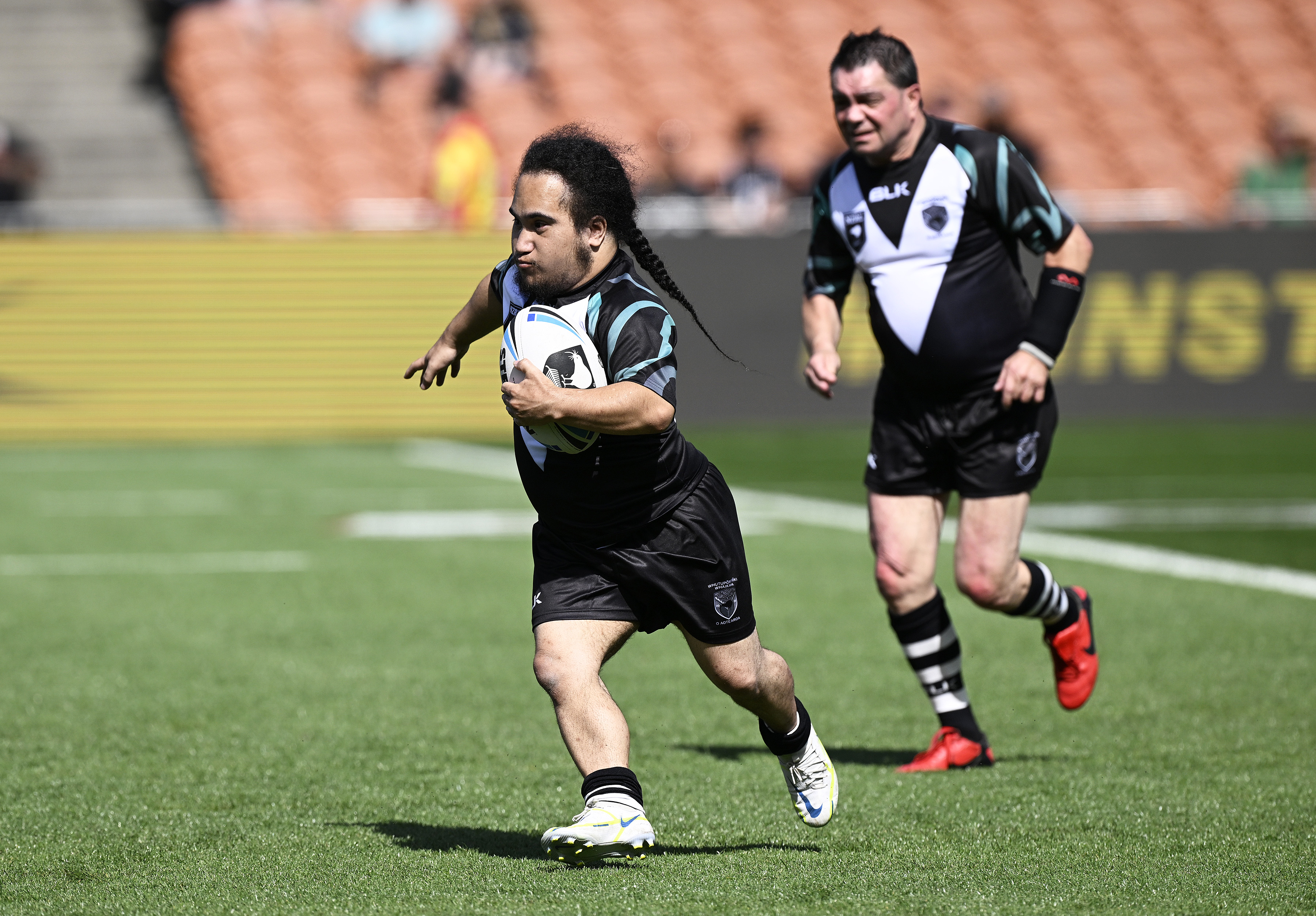
In tribute to Jeremy Hendrix-Harris, PDRLNZ Kiwi #14
It is with great sadness that we acknowledge and mourn the passing of Jeremy Hendrix-Harris, Whutupōro Rīki Whaikaha o Aotearoa Physical Disability Rugby League (PDRLNZ) Kiwi #14.
Jeremy was a cherished member of the PDRLNZ community for many years and proudly represented Aotearoa on multiple occasions. His international appearances included the 2018 Rugby League Emerging Nations World Championships in Sydney and the 2021 PDRL World Cup in England, the inaugural competition in which the PDRLNZ Kiwis achieved a historic silver-medal finish.
Jeremy also took the field in the 2023 Pacific Championships Grand Final curtain-raiser at FMG Waikato, representing the PDRL Kiwis in the match against the PDRL Kiwis A side.
We extend our heartfelt condolences to Jeremy’s whānau, friends, the PDRLNZ and wider PDRL community, and all who knew and loved him. He will be greatly missed, moe mai rā Jeremy.
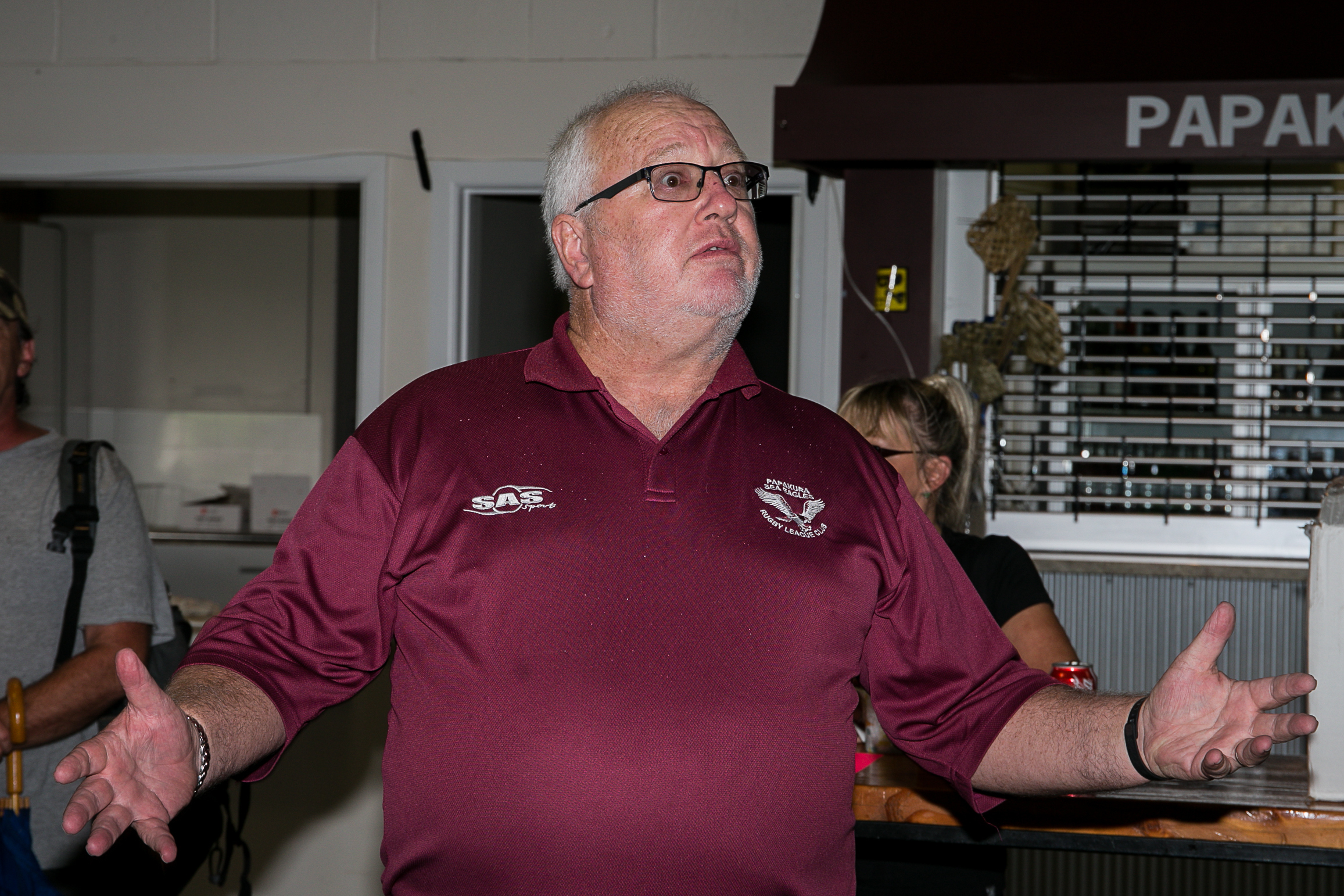
Remembering Bill McEntee
We very sadly mourn the passing of William "Bill" McEntee. Bill was well known and widely respected within the rugby league community, having served at every level of the game from grassroots through to national leadership.
Bill's relationship with rugby league began in 1963 playing for his beloved Papakura Sea Eagles, where he went on to become a Life Member and served as the club's Chairman and President for many years.
Over the years, Bill wore many hats in service of our game and its people across Aotearoa, including Coach, Committee Member, Chairperson, and NZRL Board Member. He was the first-ever Counties Manukau Stingrays Life Member as well as the current Counties Manukau Rugby League President, and a New Zealand Rugby League Life Member since 2023.
Bill's impact extended beyond rugby league, serving his local community as the Chairman of the Papakura Local Board. We offer our deepest sympathies and condolences to the McEntee family, the Papakura Sea Eagles, and all who knew and loved Bill.
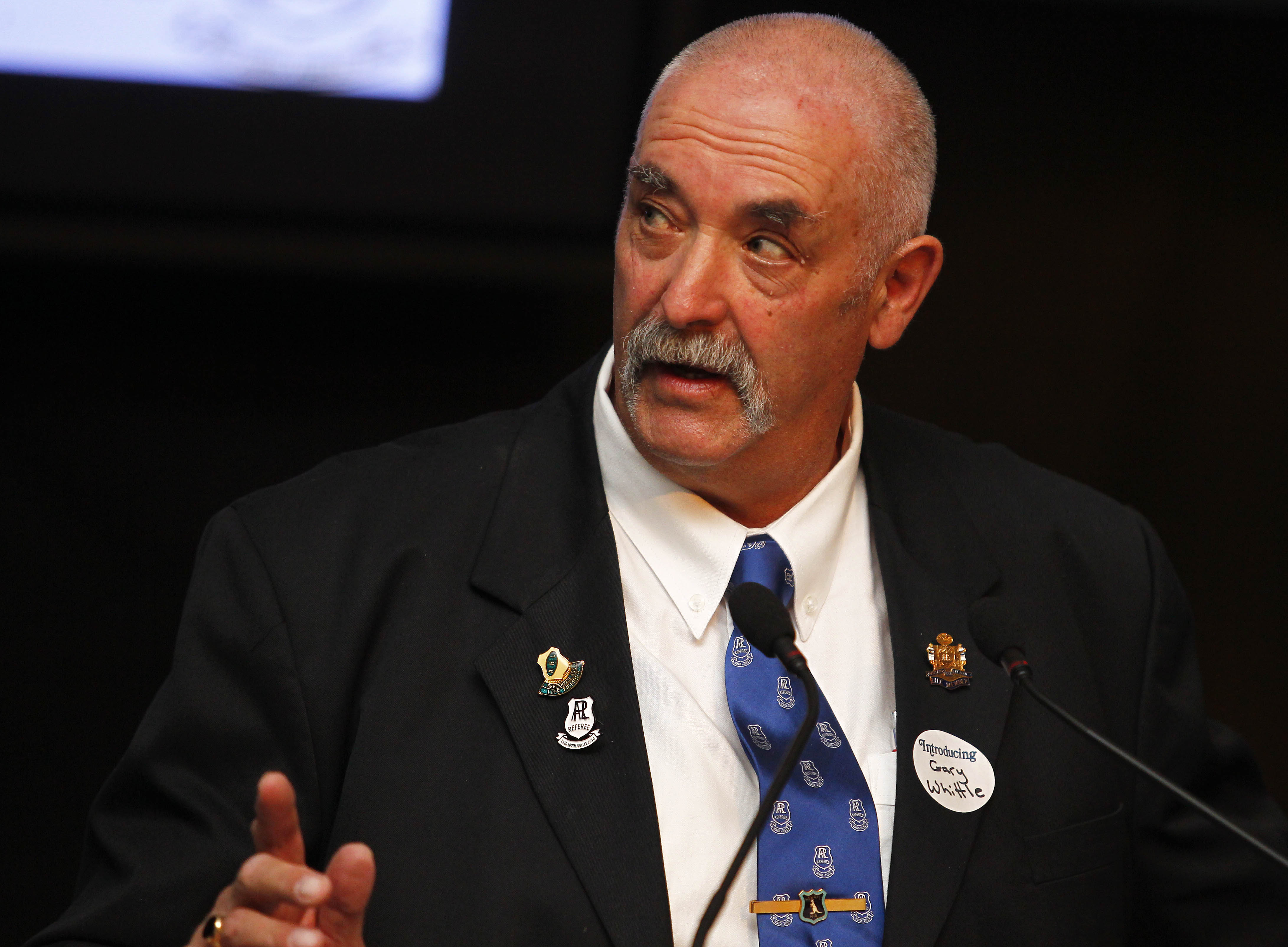
Gary Whittle & Jenny Nahu appointed members of the New Zealand Order of Merit for services to rugby league
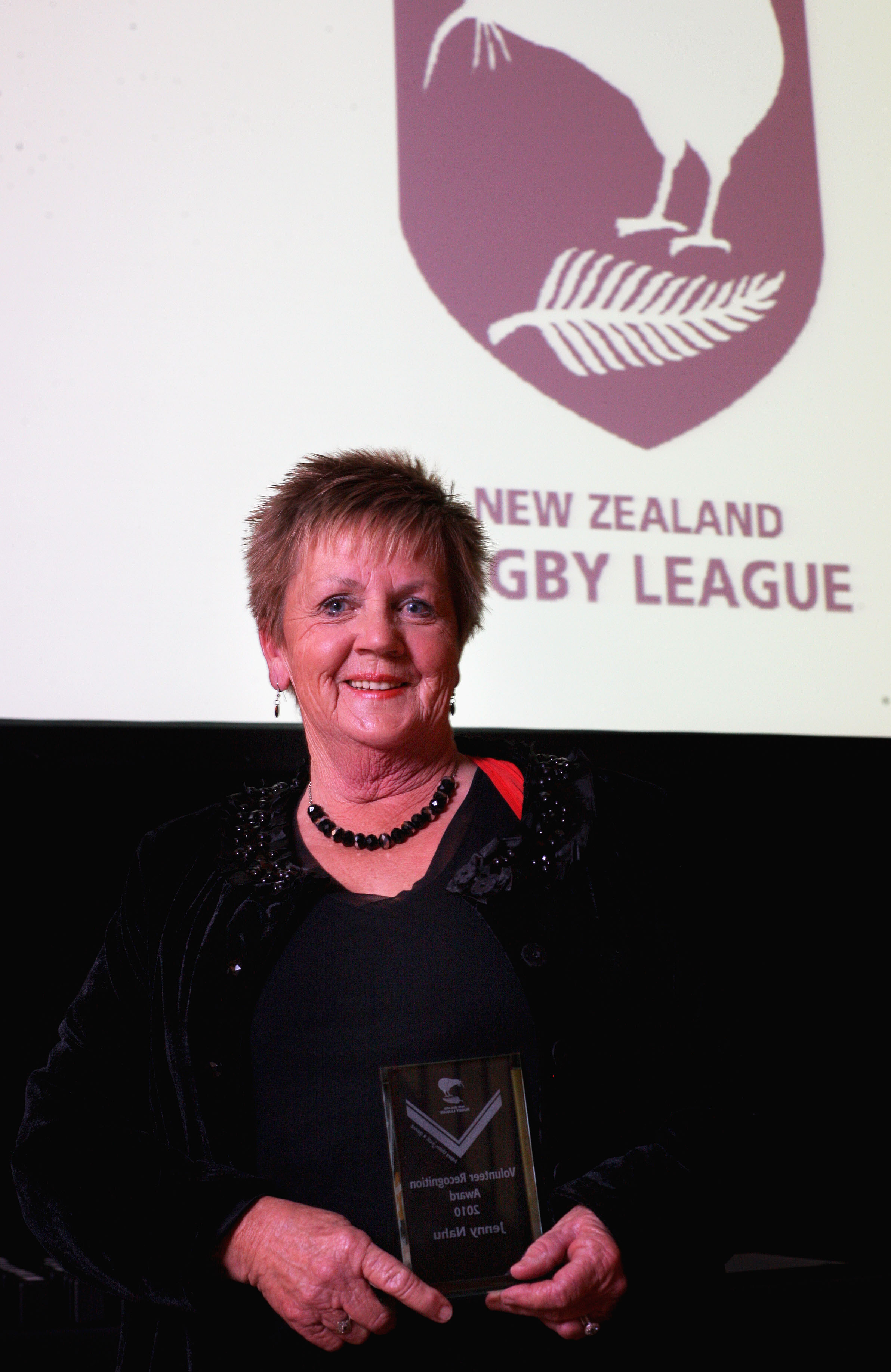
Rugby league stalwarts Gary Whittle from East Auckland and Rotorua's Jenny Nahu have been appointed members of the New Zealand Order of Merit (MNZM) for outstanding services to rugby league, in the New Year 2026 Honours List.
Gary Whittle has been involved with rugby league for more than 65 years, in roles spanning referee, touch judge, ground announcer, timekeeper and administrator in Northland, Waikato and Auckland. Gary was appointed as the timekeeper for Warriors games in New Zealand in 1995, initially beginning as a volunteer, and has since been timekeeper for more than 500 games.
He has volunteered in a range of other roles to ensure many rugby league events could be staged, and to help maintain rugby league’s high standards and reputation. He has been a member of the Auckland Rugby League Judicial Committee since 1981 and is serving his second term as Chair. He has served on a range of committees for the Auckland Rugby League Referees Association, including the annual Gold Medal Awards for more than 10 years. He was the ground announcer at Carlaw Park for Auckland Rugby League for 15 years.
He has been a Director of the Rugby League Museum Society since 2009. He chaired Auckland Police Rugby League from 1985 to 1992. Gary is a Life Member of the Auckland Rugby League Referees Association and of Auckland Rugby League since 2008, and was recognised with a Distinguished Service Award from New Zealand Rugby League in 2000.
Jenny Nahu has influenced the culture and sustainability of rugby league in Rotorua and the Bay of Plenty region. She has held executive roles with the Ngongotaha Rugby League Club for 55 years and Bay of Plenty District Rugby League for 40 years. She helped persuade the Rotorua District Council to develop six fields of new rugby league grounds on the east side of Rotorua City.
She secured the first-ever club base in the Rotorua community for rugby league some 10 years later, a facility that is also used by several other community organisations. She led the transformation of Puketāwhero Park into the central hub for rugby league in Rotorua, including project management and building development. She was involved with the relocation of the Carlaw Park administration building, gifted by Auckland Rugby League and then transported to Puketāwhero Park in Rotorua.
She continues to serve as the park’s Property Manager. She has established rugby league as a vehicle for mentorship, youth engagement and community pride, nurturing generations of young people on and off the field, particularly Māori and Pacific youth. Jenny is a Life Member of both the Ngongotaha and Bay of Plenty Rugby League Clubs.
We congratulate both Jenny and Gary on their well-deserved appointments to the New Zealand Order of Merit, and also thank them for their lifetimes of remarkable service to our game of rugby league.
As seen on dpmc.govt.nz
.png)
Position available: National Coach Development Manager
Position available: New Zealand Rugby League National Coach Development Manager
Rugby league has played a significant part in New Zealand sport for over 100 years. Formed in 1910, New Zealand Rugby League (NZRL) is the governing body for the sport of rugby league in New Zealand.
NZRL is divided into seven zones that service the grassroots needs of the game. These zones compete in the National Premiership/Championship, as well as women’s, youth and schools’ competitions. NZRLmanages the Kiwis and Kiwi Ferns, who play regular international fixtures and compete in the Rugby League World Cup every four years.
Through our “More Than A Game” philosophy, NZRL aspires to transform lives and community wellbeing through Rugby League.
Underpinning this philosophy is The Kiwi Way. We are diverse, we call New Zealand home and therefore we are all Kiwis. We live and play The Kiwi Way – all day/every day:
- We are inclusive, respectful and humble
- We are responsible
- We are innovative and courageous
- We are family first
OUR GOALS
- Rugby league enjoyed by more people
- A financially sustainable NZ Game
- Women’s game thriving and enhanced opportunities for women in the game
- Kiwis and Kiwi Ferns inspirational & aspirational
- NZRL to be a model modern sports organisation
PURPOSE
The National Coach Development Manager is responsible for the overall implementation of the NZRL coaching plan and working with coaching and development staff within Zones/Districts to deliver the plan.
KEY RESPONSIBILITIES
1. Delivery of NZRL Coaching Strategy
· Research to identify best practice coaching models.
· Review, refine and implement NZRL’s coaching strategy in conjunction with relevant NZRL and Zone/District personnel.
· Monitor the achievement of NZRL coaching objectives and outcomes identified in the NZRL Coach Development and High Performance plans.
· Assist Zones/Districts with performance management of their coaching and development staff in line with national and Zonal/District objectives.
· Manage the training and development of the coach educator network nationally.
2. Implement NZRL Coach Accreditation Scheme
• Responsible for the overall development and implementation of the NZRL coach development programmes in line with the NZRL Football Calendar
• Continually review and evaluate existing programmes and conduct research and benchmarking to identify best practice in coaching and game development.
• Implement sustainable best practice processes to increase overall quality of rugby league coaching.
• Liaise with relevant NZRL personnel to ensure all coaching programmes are fully integrated with High Performance, Football, Commercial and Brand strategies.
• Continuously work with appropriate Zone/District personnel to inform and maintain national alignment and consistency across all NZRL High Performance, Football, and coaching programmes.
• Continuous and in-depth communication across all Zones and districts to maintain a clear overview of our coaching and development programmes and to remain ‘in touch’ with our communities.
• Assist NZRL Executive and Board with other tasks/projects as and when reasonably required, in consultation with the GM of Football & High Performance.
3. Resource Development
· Develop literature/resources to support NZRL coach accreditation programmes.
· Develop, in consultation with the GM of Football & High Performance, a Core Competency, technical, tactical, and mental skills matrix.
· Develop and produce literature/resources to enhance and support coaching recruitment and retention programmes.
· Disseminate information relevant to education and assessment processes in a timely and accurate manner.
· Utilise the NZRL website to improve accessibility of resources and to enhance education and assessment programmes where appropriate.
4. Planning and Reporting
Weekly work in progress meetings with relevant NZRL staff as per NZRL’s management. The NZRL Football & High-Performance department is connected to and works with all areas of the organisation and the wider rugby league community; therefore, a motivated team player who can also work independently is required.
PLANNING AND REPORTING
- Meeting NZRL KPIs for coach development tasks.
- Delivering on tasks as directed and requested by the NZRL General Manager of Football & High Performance.
- Working with other departments and teams to ensure communication, alignment and the delivery of coaching courses and upskilling opportunities, competitions and tournaments.
GENERAL DUTIES &RESPONSIBILITIES
- Be punctual and work the hours and times specified.
- Prioritise workload to ensure work of the greatest importance to the business is undertaken with urgency and to a high standard.
- Support and help develop a positive workplace culture.
- Demonstrate excellent interpersonal communication skills.
- Responsibly manage all business resources within accountability levels.
- Undertake all duties and responsibilities outlined in this Job Description and all other duties as required by the business.
- Comply with all employment obligations.
- Promptly undertake to complete all reasonable and lawful instructions and directions given.
- Serve the business in good faith, promoting and protecting the business' best interests.
- During work time, and such other times as may be reasonably required, dedicate all effort to the execution and fulfilment of the duties, responsibilities, obligations and instructions related to employment.
- Demonstrate through own actions a commitment to Health and Safety at work when undertaking work or observing others in the workplace.
SKILLS, EXPERIENCE & EDUCATION
- Demonstrated experience in leading coach development in a national sporting organisation.
- Sound MS Office and database management skills.
- Excellent organisational and planning skills; and
- Excellent written and verbal communication skills.
HOW TO APPLY
This role can be based at the New Zealand Rugby League Head Office in Penrose, Auckland, or outside Auckland.
To apply for this role, please send in a covering letter accompanied with your CV to: football.operations@nzrl.co.nz
Applications will close on Sunday 18th January 2026.
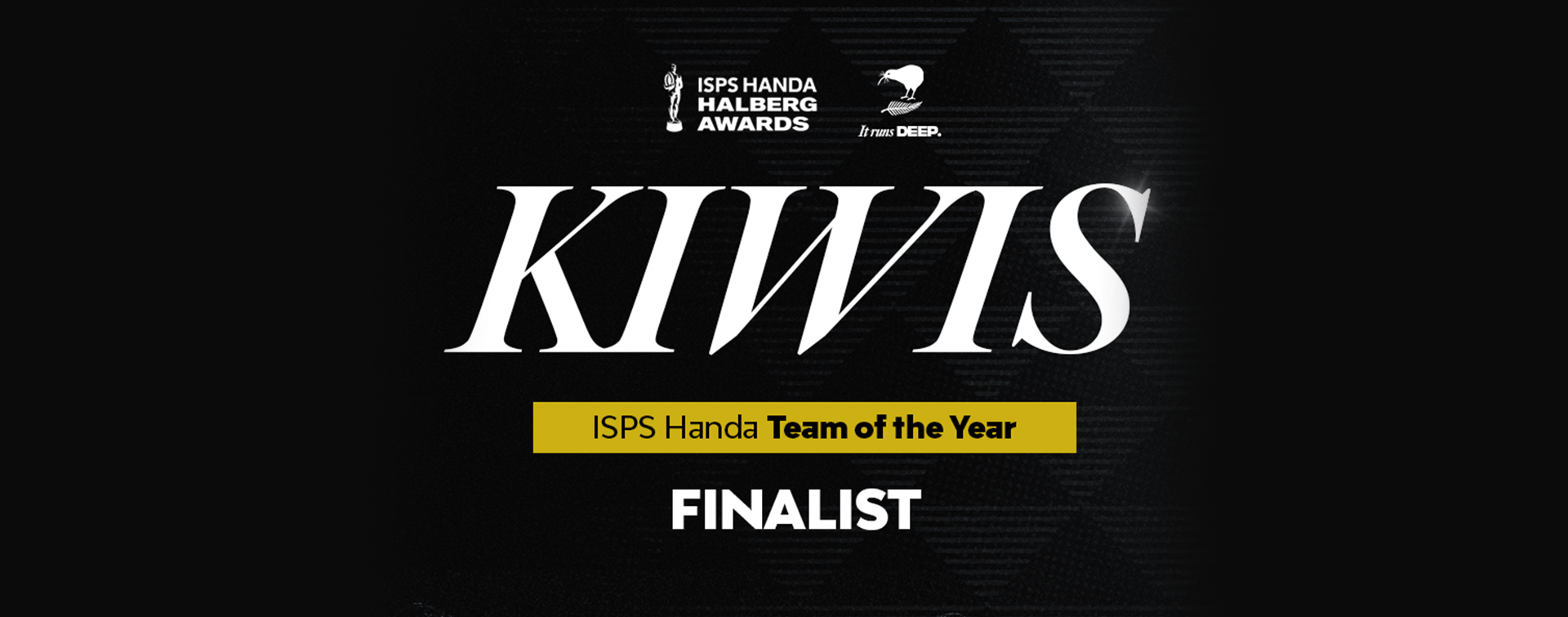
Kiwis named finalists for Team of the Year Halberg Award
The Kiwis have powered into the shortlist for Team of the Year for the 2025 Halberg Awards, New Zealand’s premier honours recognising the top sporting achievements of the year.
The Kiwis’ remarkable 2025 campaign saw them produce a 100% win record, secure both the Sir Peter Leitch Challenge Cup, contested between New Zealand and Pacific nations, and the coveted Pacific Cup.
Competing in the top tier of the Pacific Championships, the Kiwis faced world-class Tonga and Toa Samoa sides, strengthened by a wave of elite players pledging allegiance to the Pacific nations. They delivered dominant pool-stage performances, beating Samoa 24-18, before a commanding 40-14 win over Tonga.
The Kiwis went on to face Toa Samoa again in the final at Sydney’s Commbank Stadium. Trailing at halftime, they produced a stunning second-half comeback, scoring 30 unanswered points to storm home 36-14. The win secured their second Pacific Cup title in three years and their first under head coach Stacey Jones. The result also cemented New Zealand’s place at number two in the World Rankings.
Rugby league continues to grow in Aotearoa and around the world, with more than 50 nations now participating in the game. The same growth can be seen amongst fans, with all three Kiwis matches drawing over one million television viewers. The clash with Tonga at Eden Park attracted the largest rugby league crowd in New Zealand in over a decade, setting the stage for what is shaping up to be a blockbuster World Cup in 2026.
Also shortlisted for Team of the Year are Auckland FC (football), Black Ferns Sevens, (rugby sevens), New Zealand Black Sox (softball), the Men’s Team Pursuit (track cycling), and rowing duo Ben Taylor and Oliver Welch.
Winners will be announced at a black-tie ceremony at Spark Arena in Auckland on Monday 16 February 2026. The evening will also crown the Sir Murray Halberg Legacy Award, Sport New Zealand’s Leadership Award, and the only publicly voted honour - New Zealand’s Favourite Sporting Moment. The ceremony will be broadcast live on Sky Sport and free-to-air on Sky Open from 8:00pm.
See the full list of nominees here: halberg.co.nz
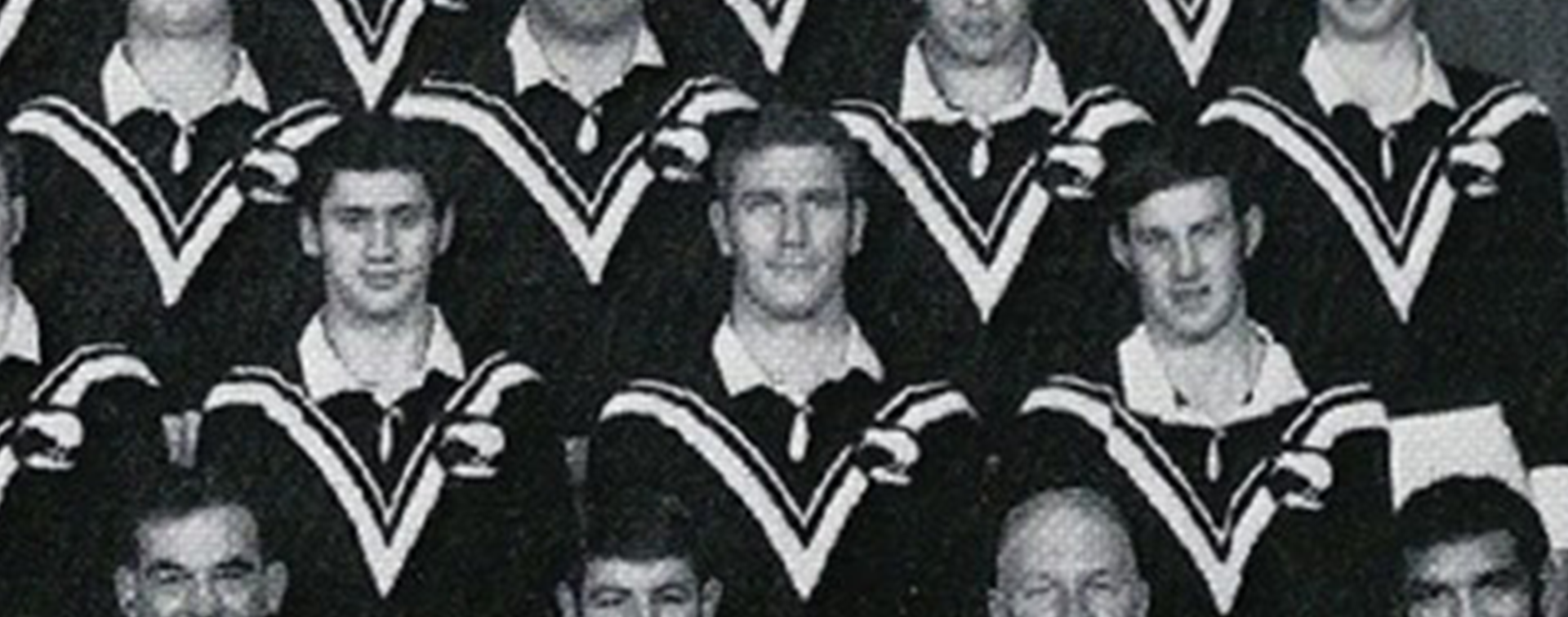
In Remembrance of 1971 Grand Slam Kiwi #448 Garry Smith
We sadly mourn the passing of Kiwi great Garry Maxwell John Smith, New Zealand Kiwi #448, at age 84.
Smith's early years were spent representing the small town of Runanga and the West Coast region. Later moving to Wellington, Smith joined Marist and won two premierships with the club in 1965 and later in 1971. In 1965, he also featured in the North Island representative team before earning selection for the Kiwis the following year.
A talented second rower and prop, Smith played his debut campaign for the Kiwis in 1966, playing in two losses to Australia in what was the start of a six-year tenure for the Kiwis. In 1967, he toured Australia, playing in one Test and 10 of the 17 tour games. The following year, Smith played in the 1968 World Cup co-hosted by Australia and New Zealand, as well as the following 1970 World Cup in Great Britain.
In 1971, his final season for New Zealand, he was a vital member of the historic 'Grand Slam Kiwis' squad. Across 86 days, the New Zealanders played 26 matches across Britain and France, six of them Tests, and achieved the feat of winning the series against Great Britain 2-0 and earning a 2-0 result against France. Smith and the 1971 Kiwis were the first official New Zealand team to win a series in the United Kingdom.
He retired from international duties with 16 Test caps for New Zealand, three Test tries, and 39 additional non-Test games for the Kiwis.
Towards the back end of his rugby league career, Smith became a Kapiti Bears Rugby League Club loyal, and was a pillar forward for Wellington's representative side.
We extend our heartfelt condolences and thoughts to Garry’s family, friends, teammates, and all whose lives he touched throughout his community. Garry will be sorely missed, but he leaves behind his contributions to the black and white jersey and the game of rugby league, that will be remembered forever.
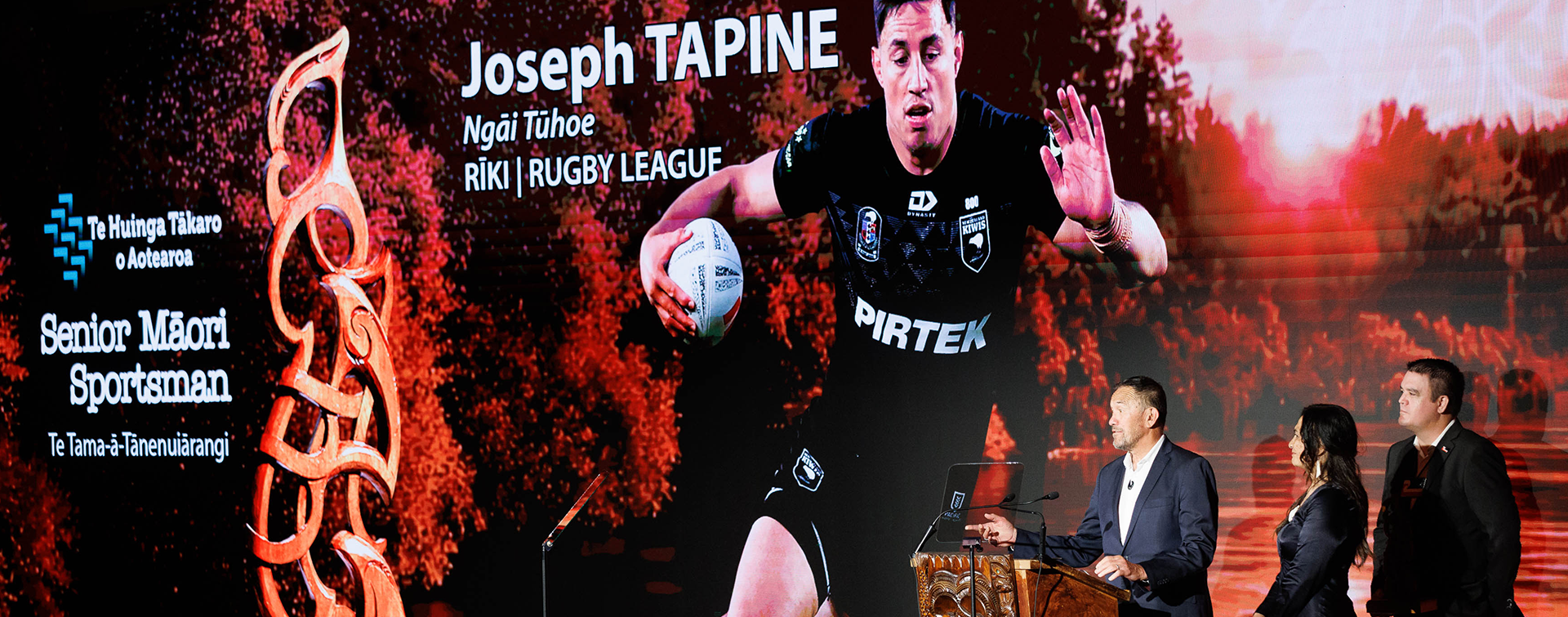
Trillian Trust Māori Sports Awards: rugby league award & scholarship winners
The Trillian Trust Māori Sports Awards was hosted by Te Tohu Taakaro o Aotearoa Charitable Trust at Tūrangawaewae Marae in Ngāruawāhia on Saturday 29 November. This prestigious event celebrates Māori sporting excellence and recognises the achievements of Māori athletes, coaches, referees, and administrators across various sports codes.
Now in its 35th year, we would like to congratulate the three rugby league participants who took home awards and scholarships. Kiwis enforcer Joseph Tapine won Senior Māori Sportsman of the Year, after an outstanding year captaining the Canberra Raiders to an NRL minor premiership and being instrumental in the Kiwis’ Pacific Cup victory.
Congratulations also to Waikato referee Epiha Muru-Kete, who was awarded the Skills Active Aotearoa Māori Sports Awards Scholarship, and Te Maia Sweetman, a Mid Central Vipers and Aotearoa Whaanui representative, who received the Te Kunenga Ki Pūrehuroa Massey University Scholarship. We also recognise renowned Waikato referee Paki Parkinson, who was a finalist for the Māori Sports Umpire/Referee of the Year award.
See the full list of winners here maorisportsawards.co.nz
TE TAMA-Ā-TANENUIĀRANGI | Senior Māori Sportsman of the Year
Joseph Tapine (Ngāi Tūhoe), Ahitereiria | Australia – rīki | rugby league
SKILLS ACTIVE AOTEAROA | Māori Sports Awards Scholarship
Epiha Ricky Muru-Kete (Waikato Tainui), Rāhui-Pōkeka | Huntly – rīki | rugby league
TE KUNENGA KI PŪREHUROA | Massey University Scholarship
Te Maia Sweetman (Rangitāne ki Tāmaki Nui a Rua), Te Papaioea | Palmerston North – whutupōro | rugby, rīki | rugby league
TE ARATIATIA | Māori Sports Umpire/Referee of the Year (finalist)
Paki Parkinson (Waikato Tainui) – rīki | rugby league